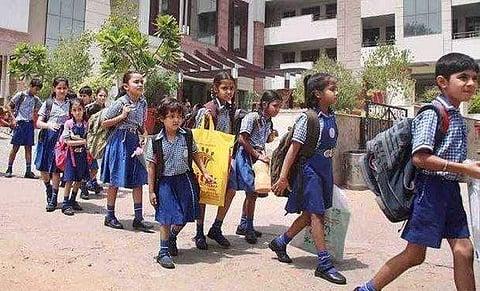

The census to identify the number of school dropouts, non-school-going and differently-abled children in the district began on Saturday. The census which aims at facilitating ways to enrol non-school going children between the age of 6 and 14 will end on December 10.
In a release, Collector C Kathiravan stated that teachers, trainee, headmasters, village administrative officer, Anganwadi staff, self-help group members, childline, ICDS, NCLP, DCPU, police, Social Welfare, health and labour department will jointly conduct the census in all residential areas in the district. The identified children will be enrolled in the respective classes in the formal schooling system.
Apart from that, children of migrant labourers working in brick kilns, stone quarry and other industries will also be listed in the census. Collector also urged the members involved in the census activity to follow the government's COVID-19 prevention protocols.
The survey shall be carried out door-to-door, following the Standard Operating Procedures (SOPs) stipulated by the State and Central governments. There will be a special focus on conducting a census in hotspots, where there is a higher chance of finding such children. This includes industries, railway stations, bus stops, construction sites and market areas. The zonal supervisor, teachers, special teachers, principals, Anganwadi workers, volunteers, and social workers can participate in the survey. The Labour Department, childline and district child protection unit shall conduct raids in these areas, also as part of the exercise.
The children who are identified to be out of schools will be reintegrated and enrolled in the education system appropriately, as mandated under the Right to Education (RTE) Act. Disabled children will be assessed through the home readiness programme and will be given home-based training or regular schooling, based on their needs.
